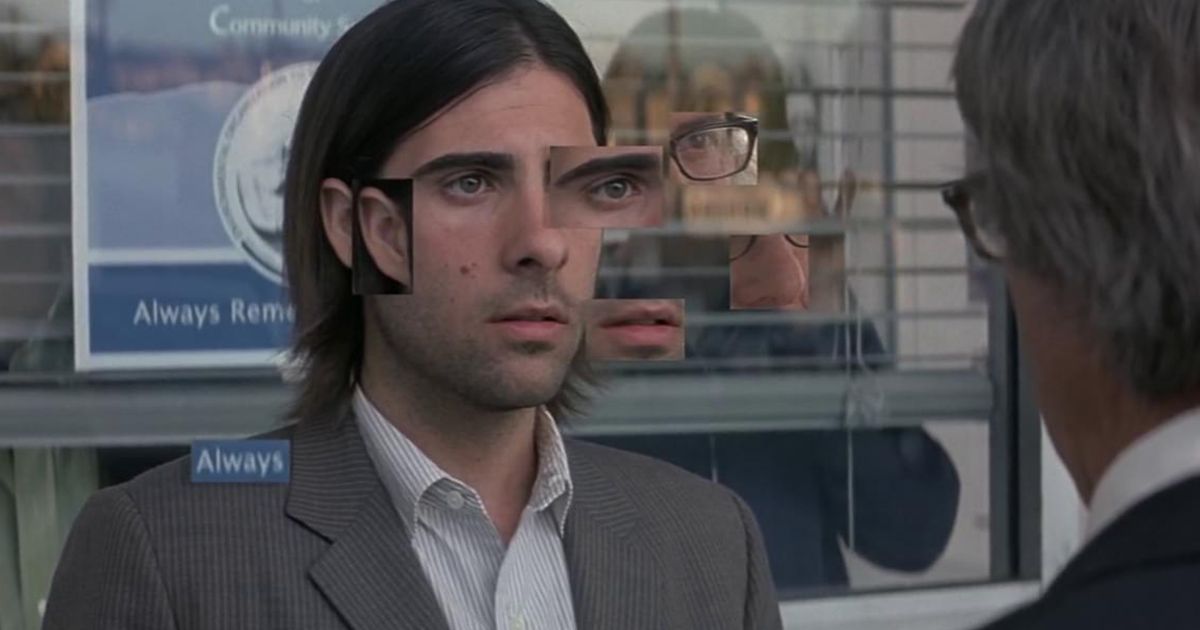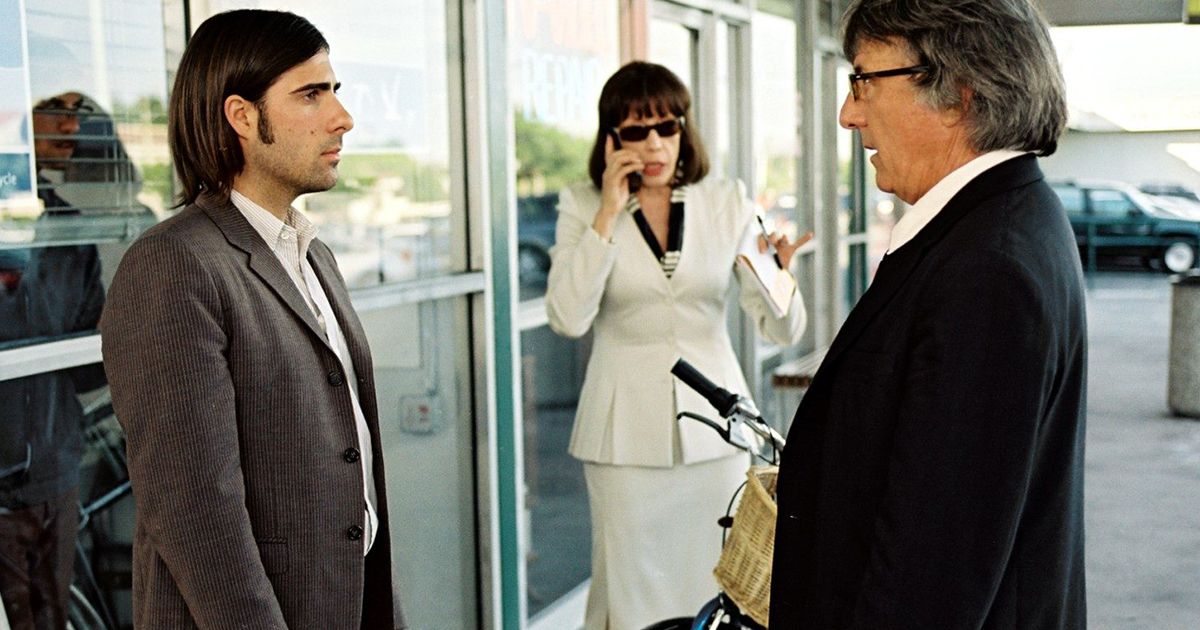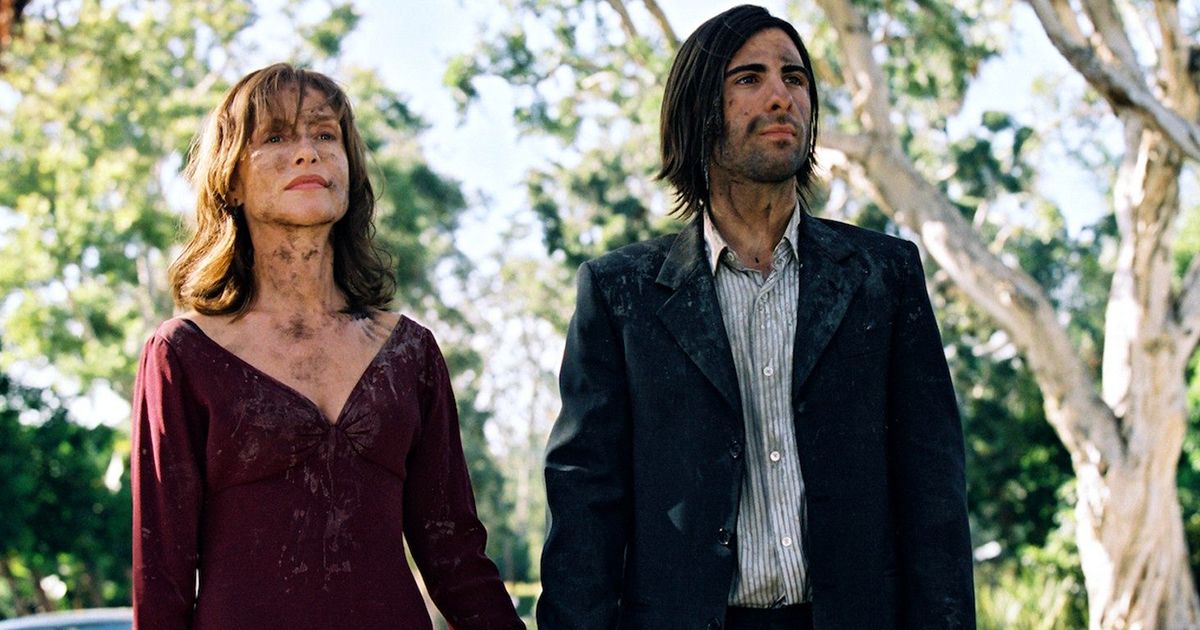David O. Russell’s 2014 independent film I Heart Huckabees is everything but a regular comedy. It is an unusual, bizarre, joyous, and thought-provoking love-letter to philosophy. The Guardian described I Heart Huckabees as the first post-9/11 comedy; after the September 11 attacks, people have been asking questions about the meaning of life. Who are we? What are we doing? Is that good enough? Is it hopeless to try and change things? What if nothing makes sense? I Heart Huckabees tries to find answers for this sort of existential questions with a witty sense of humor.
The film received mixed reviews from audience and critics, with The New Yorker noting, "Huckabees is the real thing — an authentic disaster — but the picture is so odd that it should inspire, in at least a part of the audience, feelings of fervent loyalty." While some consider it a delightful masterpiece, this is really not a movie for everyone, but I Heart Huckabees provides the audience with access to philosophical ideas.
I Heart Huckabees focused more explicitly on philosophy than most other films. In fact, the whole point of the film is a confrontation between existentialism and nihilism. The first form of philosophical inquiry explores value of human existence, the second says that life is meaningless. The protagonist of the film, along with the audience, is faced with a choice: either believe that everything is connected and life is worth living or agree that nothing is connected, and the world is simply a mess.
The Existential Crisis of I Heart Huckabees
I Heart Huckabees is a movie about characters having existential crises. The film centers on Albert Markovski (played by Jason Schwartzman), a bad poet who wants to save "open spaces" from the growth of suburban areas. His current mission is stopping the new Huckabees store from being built. In emotional opening scene, Albert questions the purpose of his work as an environmental activist and is tormented with thoughts about the meaning of his life. Strange coincidences lead him to an unusual couple who call themselves existential detectives, Bernard and Vivian Jaffe (played by Dustin Hoffman and Lily Tomlin), promise to help Albert break free of his existential crisis.
Bernard and Vivian study Albert’s case by spying on him everywhere; "There's nothing too small. You know when police find the slightest piece of DNA and build a case on it? If we might see you floss or masturbate that could be the key to your entire reality", Vivian says. They realize that Albert’s conflict with the always perfect and smiling Huckabees salesman Brad Stand (played by Jude Law) means a lot. So, Brad also becomes a client of the existential detectives.
The Jaffes peek into the souls of their clients using philosophical methods. Both represent two different perspectives that work perfectly together and help the couple to express a common optimistic idea about universal interconnecting. Bernard takes a metaphysical perspective and studies the fundamental nature of reality (merging Buddhism with ontology). He is a dreamy philosopher with beautiful theories that are difficult to compare with reality.
One such theory is 'the blanket.' Bernard tells Albert that the blanket can easily represent all the matter and energy in the universe. The blanket is everything. Vivian pays more attention to details, rather than broad metaphysical ideas of Bernard. She represents another branch of philosophy, epistemology (or the theory of knowledge). She carefully studies clients' cases and always takes notes, played to perfection by Lily Tomlin of Netflix's Grace and Frankie. The different approaches of detectives lead their clients to existentialism, a philosophical belief stemming from Jean-Paul Sartre, Soren Kierkegaard, and Simone de Beauvoir, theorizing that we can create meaning in our own lives even if there is no absolute meaning.
Of course, it is not that simple; at first Albert feels Bernard and Vivian's beautiful talks about universal interconnection are not helping. So, when Bernard and Vivian introduce him to their other client Tommy as Albert’s "other," Albert goes with Tommy to the dark side of philosophy.
Dark Side of Philosophy
Tommy Corn (played by Mark Wahlberg) is a disillusioned firefighter who thinks the biggest problem in the world is the exploitation of petroleum. He only believes in Caterine Vauban’s ideas. Caterine (played by Isabelle Huppert) represents nihilism; she is France's dark lady of philosophy, the author of the book If Not Now. "Existence is a cruel exercise in suffering, the world is a stage for absurd meaningless drama, our universe is the unexplained circus," she wrote on her fictional website. Although Caterine Vauban is a character in I Heart Huckabees, she was largely inspired by the works of Albert Camus, Friedrich Nietzsche, Alan Pratt, Martin Heidegger, and others.
Albert must overcome Catherine’s most nihilistic ideas in order to find meaning in the pain of existence. Jean-Paul Sartre did the same in his remarkable text Existentialism Is a Humanism. One of the greatest French philosophers, Sartre said that people are "condemned to be free" so "the destiny of man is placed within himself." So, we can only deal with the idea that nothing makes sense by creating our own sense.
In the film, Caterine Vauban had been a student of Bernard and Vivian Jaffe. Albert and Tommy began to suspect that the acquaintance with nihilistic philosophy was part of the plan of existential detectives. Indeed, after all their philosophical adventures, Bernard’s theory of the blanket became clearer to them. As Bernard says, "When you get the blanket thing you can relax, because everything you could ever want or be, you already have and are." The same discoveries can await anyone who dares to take David O. Russell’s odd film seriously.



.png)
